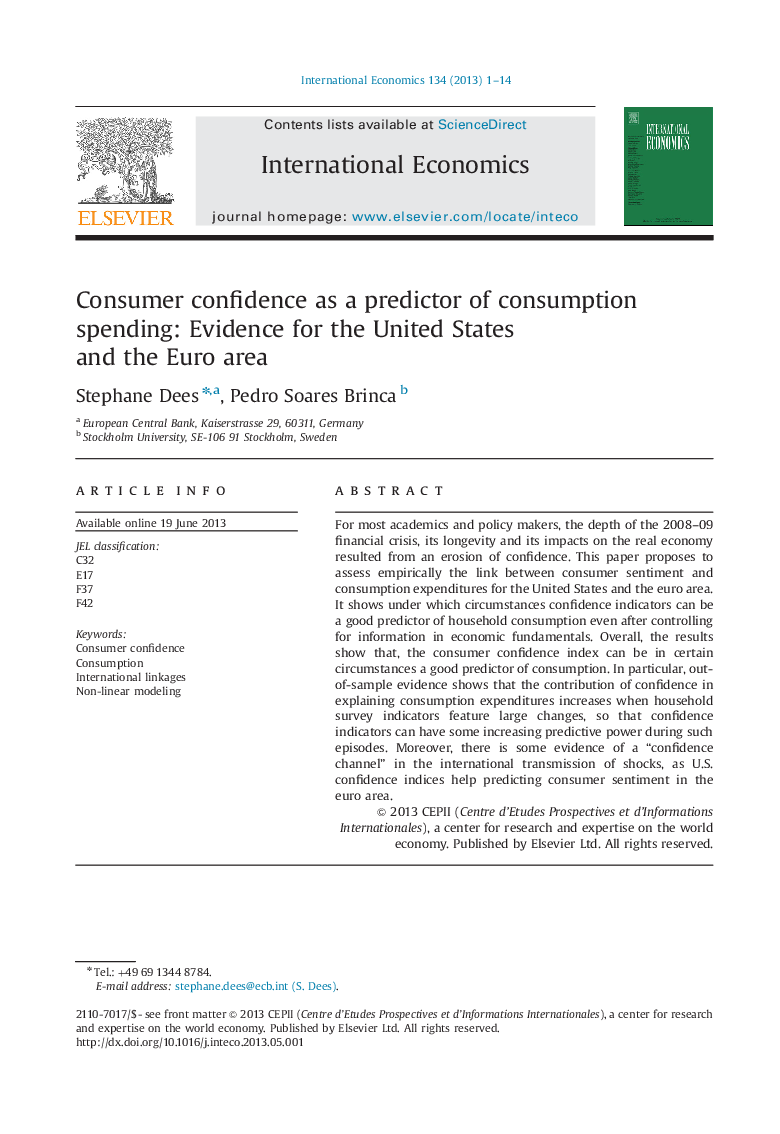| Article ID | Journal | Published Year | Pages | File Type |
|---|---|---|---|---|
| 997952 | International Economics | 2013 | 14 Pages |
For most academics and policy makers, the depth of the 2008–09 financial crisis, its longevity and its impacts on the real economy resulted from an erosion of confidence. This paper proposes to assess empirically the link between consumer sentiment and consumption expenditures for the United States and the euro area. It shows under which circumstances confidence indicators can be a good predictor of household consumption even after controlling for information in economic fundamentals. Overall, the results show that, the consumer confidence index can be in certain circumstances a good predictor of consumption. In particular, out-of-sample evidence shows that the contribution of confidence in explaining consumption expenditures increases when household survey indicators feature large changes, so that confidence indicators can have some increasing predictive power during such episodes. Moreover, there is some evidence of a “confidence channel” in the international transmission of shocks, as U.S. confidence indices help predicting consumer sentiment in the euro area.
